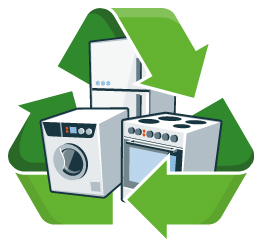The advancement in technology leads to the creation of new devices every day. Though these devices make our life easier, the replacement of old devices for new ones causes environmental pollution. Before you get rid of a laptop or any other electronic device for a new one, you should think of the impact it has on the environment if not correctly disposed of.
The growth of E-waste in San Francisco is what led to the introduction of electronic recycling. The company came up with a noble cause of minimizing environmental pollution. According to statistics, more than 48 million tons of e-waste finds its way into the environment. The company decided to start helping people in the Bay area to get rid of old equipment more responsibly.
Safe recycling of electronics is a phenomenon that policymakers are slowly adapting. This is healthy since people do not know how to get rid of such devices safely. Most people fear that their data may get into the wrong hands. That is why more than 70% of old electronics remain in people’s households. They do not understand the recycling options they have. Before getting rid of any electronic device, you need to understand the risks involved as well as how to do it safely.
What is e-waste?
This refers to any electronic device that you no longer use. It can be a computer, mobile phone or television. Though such items can be recycled safely, they often find their way into landfills. Reports reveal that only 2% of electronic devices get recycled, while 80% is dumped in landfills. If people were to understand the importance of electronic recycling, then these numbers would change, and the world would be a better place.
Why Should You Recycle Electronic Devices?
Your old computer or television may be a rich source of raw materials. Such devices contain some deposits of precious metals that people spend years trying to find. Electronic devices are estimated to be more valuable than the ores people mine across the globe. Recycling them can, therefore, make them more useful than dumping them in landfills.
The waste on our lands keeps on piling up, and not every region has proactive leaders. Recycling old electronic devices is an effective way of managing solid waste. It prevents the pileup of garbage on the land. Though old electronics may have some precious metal, they contain some toxic substances. Some of them include cadmium, mercury, chromium, and lead. When people dump such electronics in landfills, they expose different living organisms to them. Such toxic substances can leach into our water and soil, causing health complications.
Recycling electronic devices prevent this from happening since it processes such items correctly to avoid harmful chemicals from being released to the environment. It, therefore, reduces gas emissions and saves energy. Recycling electronics has also created jobs for the youth. We now have professional recyclers who use this as their source of living.
Conclusion
Some regions are known to use primitive approaches when recycling such devices. It poses a significant risk to people’s health. You should, therefore, only choose a certified recycler that is known to recycle electronic devices well.
If your computer is not damaged and still works, you can donate it to someone as long as you get rid of all your personal information. Though there is no law on the recycling of electronics, taking this issue seriously can help conserve the environment.